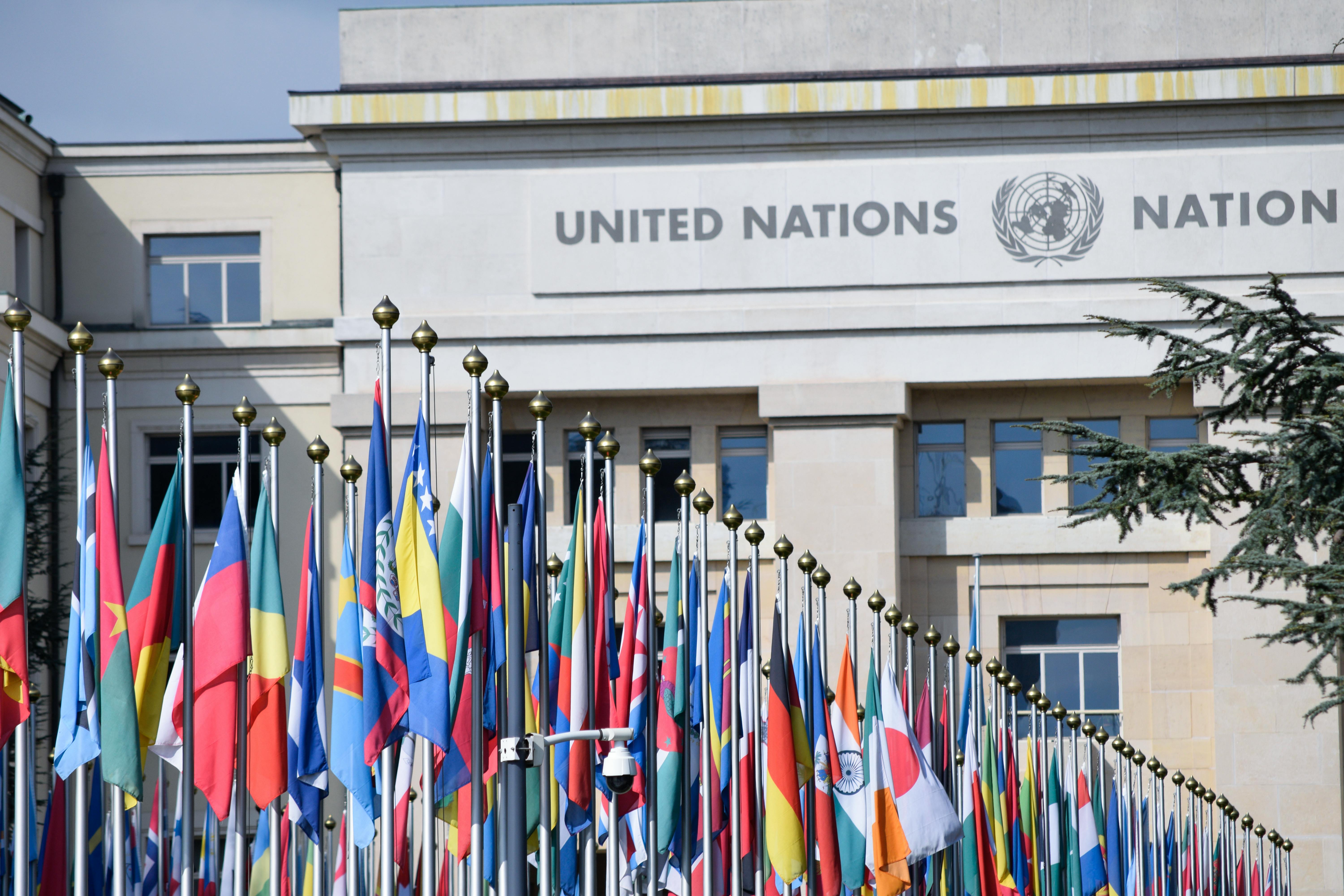The UN Security Councils Pivotal Role In Mediating The Gaza Truce: A Test Of Diplomacy And International Will

In the Labyrinth of International Politics, a Ray of Hope Emerges
As tensions escalate in the Gaza Strip, the world turns its gaze to a proposed resolution by American officials calling for an immediate truce—a testament to the complex web of diplomacy, power, and humanitarian concern that characterizes the Israeli-Palestinian conflict. Amidst this backdrop, the United Nations Security Council (UNSC) finds itself at the heart of an international effort to quell violence and pave the way for peace. This article delves into the intricacies of the proposed ceasefire, the dynamics within the UNSC, and the broader implications for global governance and peace efforts.
Historical Echoes in Modern Conflicts
The Israeli-Palestinian conflict, with its deep historical roots and recurrent cycles of violence, has long been a focal point of international attention and intervention. The significance of Gaza within this conflict cannot be overstated—a territory emblematic of the struggle, suffering, and resilience that define this enduring clash. Previous UN resolutions have sought to mediate and mitigate, yet the path to peace remains elusive, underlining the challenges that lie ahead for the current resolution.
The Anatomy of the Proposal
At the heart of the American resolution is a dual imperative: a six-week ceasefire and the exchange of 40 Israeli hostages for hundreds of imprisoned Palestinians. This proposal is not merely a call for a pause in hostilities but a complex diplomatic maneuver aimed at addressing immediate humanitarian concerns while setting the stage for longer-term negotiations. The objectives are clear, yet the path to achieving them is fraught with political and logistical challenges.
Navigating the Council’s Corridors
The UNSC, with its blend of permanent and non-permanent members, each wielding varying degrees of power and influence, is a microcosm of the larger geopolitical landscape. The resolution's fate hinges on the intricate ballet of diplomacy, with key member states holding the potential to support, veto, or abstain. Predicting the council's stance requires a nuanced understanding of each member's historical positions, current geopolitical interests, and the often-unspoken dynamics that influence voting behavior.
Unveiling the Challenges
Implementing the ceasefire and facilitating the prisoner exchange will test the international community's resolve and capability. Precedents of similar resolutions offer a mixed picture of success and failure, underscoring the importance of realistic expectations and robust mechanisms for enforcement. Moreover, the resolution must navigate the complexities of international law, humanitarian considerations, and the unpredictable actions of non-state actors and regional powers.
Lessons from the Past, Hopes for the Future
The UNSC’s history with the Israeli-Palestinian conflict is a tapestry of earnest attempts, partial successes, and missed opportunities. Each resolution, including the current proposal, is a chapter in this ongoing saga, offering lessons for future endeavors. The significance of this resolution extends beyond the immediate context, serving as a barometer for the effectiveness of the UN in mediating international conflicts and the global community's commitment to peacekeeping.
Conclusion: A Crucible of International Diplomacy
As the UNSC prepares to vote on the American resolution, the international community stands at a crossroads. The outcome will not only determine the immediate future of the Gaza Strip but also reflect the state of global diplomacy, the power of international institutions, and the collective will to pursue peace in the face of enduring conflict. In this crucible of international diplomacy, the UNSC’s role is both a beacon of hope and a mirror of the world’s complexities, challenges, and aspirations for peace.
Author: Ricardo Goulart
The Self-Destructive Nature Of Anti-Tourism Protests: Balancing Resident Concerns With Tourism Benefits
In recent years, anti-tourism protests have become increasingly common across popular tourist destinations. From the Bal... Read more
Military And Strategic Implications Of The Ukrainian Drone Attack In Kursk
On a recent morning, the Kursk region in south-western Russia witnessed an unexpected and significant event: a Ukrainian... Read more
Chinese Tech Stocks Gain Ground Despite Wall Street Technology Sell-Off
Chinese tech shares in Hong Kong gained on Friday, defying a technology stock sell-off on Wall Street, driven by strong ... Read more
Defense Pact Between Britain And Germany: A Focus On Cybersecurity And Joint Operations
In a move set to redefine European defense collaboration, Britain and Germany have signed a comprehensive defense pact a... Read more
US Secret Service Director Steps Down After Trump Assassination Attempt
Security lapses admitted by Kimberly Cheatle prompt resignation.Kimberly Cheatle, the head of the US Secret Service, has... Read more
Kamala Harris Promises A Brighter Future In Official Campaign Launch
In a vibrant and impassioned campaign launch, Vice President Kamala Harris vowed to lead America toward a "brighter futu... Read more

